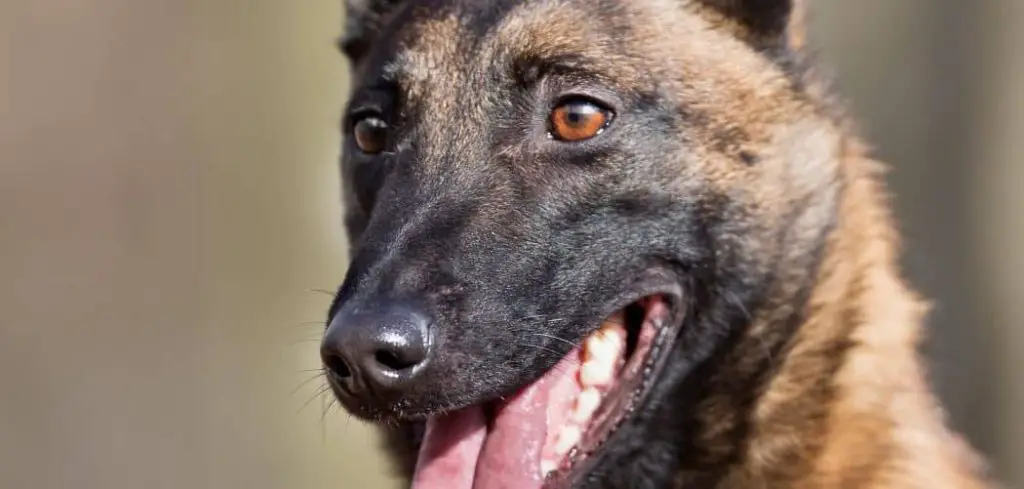As a loving dog owner, seeing your dog trembling or shivering can be a worrying experience.
Understanding the causes behind these symptoms can help you act swiftly and protect your dog’s health.
We dive deep into the link between dehydration and shivering in dogs.
Can Dehydration Cause Shivering in Dogs?
Yes, dehydration can cause shivering in dogs. When a dog becomes dehydrated, their body’s internal balance of fluids and electrolytes is disrupted. This can lead to a drop in blood pressure and body temperature, both of which may cause shivering or trembling.
Dehydration reduces the body’s ability to regulate its internal temperature. Without enough fluids, dogs may become cold even if the environment isn’t chilly. Their muscles can also become weak, leading to visible tremors.
Key symptoms of dehydration in dogs include:
Lethargy
Dry, sticky gums
Sunken eyes
Loss of skin elasticity
Loss of appetite
Shivering or trembling

How Does Dehydration Lead to Shivering?
To fully understand how dehydration can cause shivering in dogs, it helps to look at how dehydration affects the body:
Reduced Blood Volume: Dehydration decreases blood volume, impairing the delivery of oxygen and nutrients to the muscles. Without sufficient oxygen, muscles may start to cramp or shake.
Electrolyte Imbalance: Electrolytes like sodium, potassium, and chloride are critical for muscle function. Dehydration disrupts these levels, leading to muscle tremors and weakness.
Body Temperature Regulation: Dogs rely on evaporative cooling (panting) to regulate their temperature. Dehydration hampers this process, causing body temperature fluctuations that can result in shivering.
Do Dogs Tremble When They Are Sick?
Yes, dogs often tremble when they are sick. Shivering can be a generalized response to various illnesses. It is one of the body’s ways to deal with pain, fever, or weakness.
Common illnesses that may cause a dog to tremble include:
Gastrointestinal infections (vomiting, diarrhea)
Kidney disease
Addison’s disease
Poisoning
Fever
Severe pain
Infections can cause fever, and as the body temperature rises or falls, shivering can occur as part of the immune response. Similarly, poisoning or toxins can disrupt the nervous system, leading to uncontrollable muscle tremors.
Related: Dog hiccups and licking (Explained)
Other Reasons Dogs May Shiver
While dehydration causing shivering in dogs is a real concern, it’s not the only reason a dog might tremble. Here are some other possibilities:
1. Cold Temperatures
Just like humans, dogs can shiver when they are cold. Smaller breeds, short-haired dogs, and puppies are especially susceptible to the cold.
2. Anxiety or Fear
Stress, fear, or excitement can cause dogs to shiver. Thunderstorms, fireworks, or new environments are common triggers.
3. Pain or Injury
Dogs may tremble due to pain from injuries, arthritis, or internal issues like pancreatitis.
4. Neurological Disorders
Certain neurological conditions can affect the part of the brain that controls movement, leading to chronic trembling.
5. Old Age
Senior dogs may develop a condition called “senior tremors,” especially in the hind legs.
How to Tell if Dehydration is Causing Your Dog’s Shivering
Wondering if dehydration is behind your dog’s trembles? Here’s a simple checklist:
Check gums: If they are dry and sticky instead of moist, dehydration is likely.
Skin tent test: Gently pull up on the skin between the dog’s shoulders. If it doesn’t snap back quickly, your dog may be dehydrated.
Observe water intake: If your dog hasn’t been drinking water normally, dehydration could be the cause.
Monitor for other symptoms: Vomiting, diarrhea, excessive panting, or lethargy accompanying shivering are strong indicators.
If you notice multiple symptoms, it’s best to assume dehydration is at least part of the problem and consult your veterinarian immediately.
What to Do If Your Dog Is Shivering Due to Dehydration
If you suspect that dehydration is causing your dog’s shivering:
Offer Water: Provide clean, fresh water immediately. Encourage small sips rather than large gulps, which can cause vomiting.
Use Electrolyte Solutions: Canine-specific electrolyte supplements can help. Consult your vet before administering any.
Keep Them Warm: If your dog is cold, wrap them in a blanket to stabilize their temperature.
Visit the Vet: Severe dehydration is a medical emergency. Veterinary treatment may involve IV fluids to rapidly restore hydration levels.
Remember, home remedies are only suitable for very mild dehydration. If there’s any doubt, seek professional veterinary care without delay.
How to Prevent Dehydration in Dogs
Prevention is always better than cure. Here are some tips to prevent dehydration and avoid dehydration-related shivering in dogs:
Provide constant access to clean water.
Monitor water intake, especially during hot weather or after vigorous exercise.
Adjust water intake for diet: Dogs eating dry kibble need more water than those on wet food diets.
Watch for early signs of dehydration during hikes, trips, or illness.
Use dog-safe electrolyte additives during periods of stress or illness if recommended by your vet.
Regular checkups can also catch underlying issues that may lead to dehydration, such as kidney disease or diabetes.
Final Thoughts
Can dehydration cause shivering in dogs? Absolutely, and it can be a sign of serious health risks. Dehydration impacts a dog’s muscles, temperature regulation, and overall stability, leading to trembling or shivering. At the same time, trembling can also indicate illness, fear, cold, or pain.
As a responsible dog owner, staying informed about these signs can make all the difference. Always ensure your dog has access to fresh water, watch for symptoms of dehydration, and don’t hesitate to seek veterinary care when needed.
Your dog’s shivers are their way of saying something isn’t right—listen carefully.
